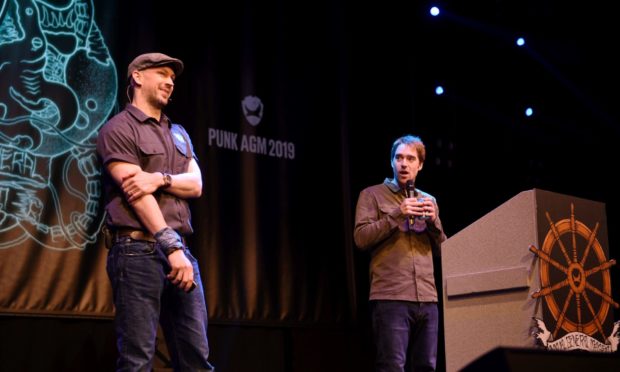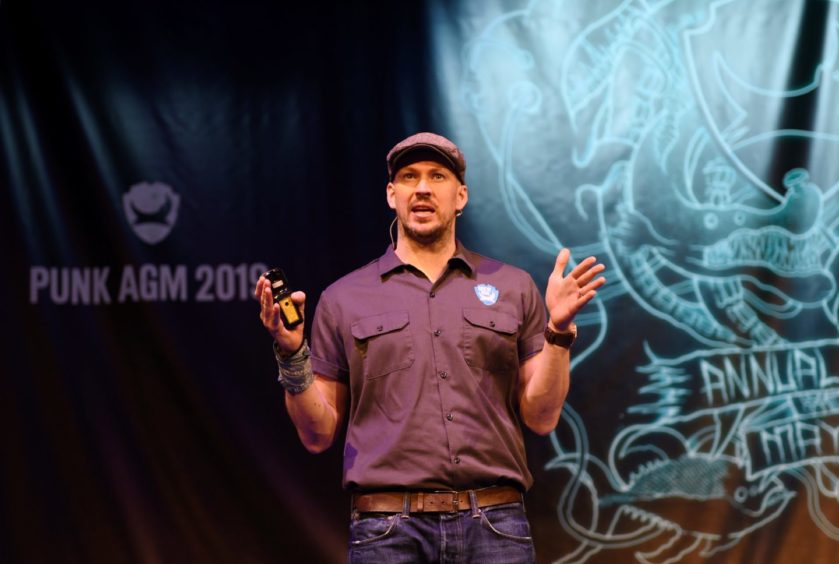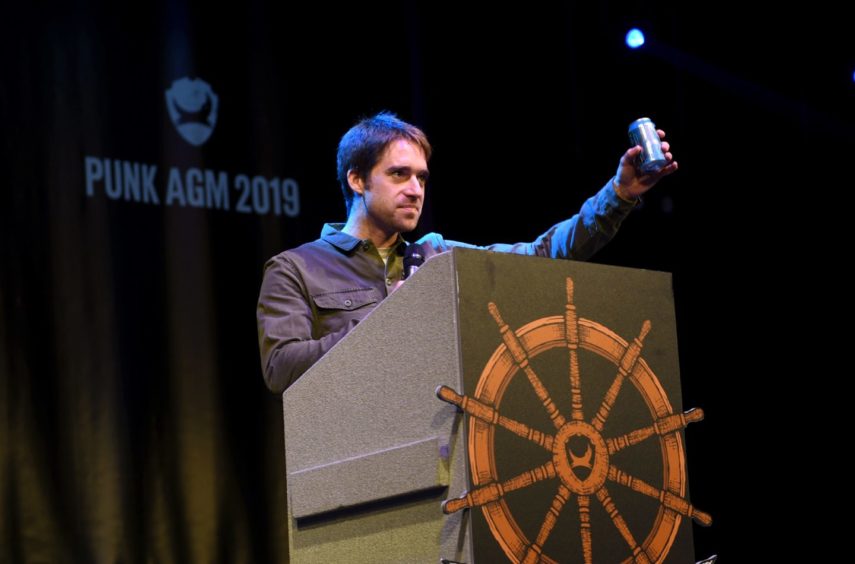James Watt and Martin Dickie, who started up their own brewery on a Fraserburgh industrial estate in 2007 when they were both 24 years old, have come in for fierce criticism.
Searching around for something to name the company, they decided on BrewDog simply because Watt’s father, Jim, had recently bought a puppy.
It has since become one of the most recognisable brands in British brewing, with stripped-back bars featuring plenty of neon light and bare metal to be found as far away as Brisbane and Indianapolis.
But Watt was one of the main targets of an open letter written by former company employees and published on Twitter on Wednesday.
A passage addressed directly to him states: “Your attitude and actions are at the heart of the way BrewDog is perceived, from both inside and out.
“In the wake of your success are people left burnt out, afraid and miserable.”
So who are the two men behind the beer kegs and in the firing line?
James Watt
Currently chief executive of BrewDog, James Watt has also acted as the public face of the brewery throughout most of its lifetime.
Coming from a family of fisherman, he would regularly help out his father on his fishing boat in the North Sea before starting up the company.
In 2004 he graduated from Edinburgh University with a degree in law and economics, later finding a job as a trainee solicitor but quitting after just two weeks.
He founded BrewDog with Dickie three years later and after floundering for the first six months or so, the business found its feet when Tesco put in a large order to sell its beer nationwide.
Watt has been at the front of many of the company’s notorious publicity stunts, such as serving a 55% proof beer in bottles made from stuffed stoats and squirrels, which Advocates for Animals branded a “perverse idea” and “stupid marketing gimmick”.
Such controversy is typical of BrewDog’s headline-grabbing publicity strategy.
The open letter written by ex-staff was highly critical.
A passage addressed directly to Watt reads: “Your attitude and actions are at the heart of the way BrewDog is perceived, from both inside and out.
“By valuing growth, speed and action above all else, your company has achieved incredible things, but at the expense of those who delivered your dreams.
“In the wake of your success are people left burnt out, afraid and miserable. The true culture of BrewDog is, and seemingly always has been, fear.”
I wanted to share a quick update on the open letter from former BrewDog team members. pic.twitter.com/yKPtKpfUmM
— James Watt (@BrewDogJames) June 10, 2021
In his response, Watt apologised and said: “It’s hard to hear those comments, but it must have been harder to say them.
“We appreciate that and we will endeavour to honour that effort and courage with the real change it deserves.
“We aren’t going to make excuses, we’re going to take action.
“From our commitment to sustainability to our passion for beer, BrewDog has always been defined by taking responsibility and continually improving. This is no exception.”
Martin Dickie
Also from Aberdeenshire, Martin Dickie has not been as prominent in BrewDog’s campaigns as his business partner.
However, it was his expertise that provided the nascent company with a product to sell.
After growing up close to each other, Dickie was Watt’s flatmate when they both lived in the capital – but while his friend studied at Edinburgh University, Dickie was at Heriot-Watt studying distilling.
He spent several years after graduation working in different distilleries and breweries, including one in England, before the pair began their venture in Fraserburgh.
Although less front-and-centre than Watt, Dickie has participated in some of BrewDog’s outlandish gimmicks – including riding an Abbott 433 tank through the streets of Camden to mark the opening of their first bar in England.
In December last year he launched his own CBD brand called HBHM (Happy Body Happy Mind).
According to a Forbes article published in January last year, Dickie’s 20% stake in BrewDog is worth around $400 million, while Watt’s 24% is worth about $480 million.
He is also not as prominent in the scathing letter written by the former employees, calling themselves Punks With Purpose, but he does get one mention.
The letter reads: “BrewDog was, and is, built on a cult of personality.
“Since day one, you have sought to exploit publicity, both good and bad (and usually with the faces of James and Martin front and centre) to further your own business goals.”


